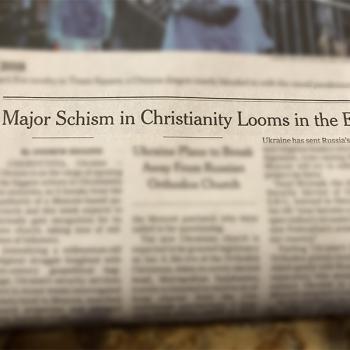The Church is In Crisis
I suspect everyone agrees that The United Methodist Church, as a world-wide organization, is in crisis. Our membership grows older and the death tsunami looms. Few churches see a vital future. People in the US church, who have been the principle financial support of the worldwide church, are moving away from denominational religious structures.
The crisis leads to pressure to have numbers that look good. We’re no different in that sense from any business that must please its stockholders and keep itself solvent for the sake of the economy and for the employment of the people involved.
One of our solutions has been greater accountability as we seek to push those numbers into the plus column and reverse the trend of losing members.
In response, denominational leadership, i.e., our Bishops (like worried Boards of Directors of corporations) cry loudly for public dashboards where pastors (their underlings) will be required each week to post attendance, offerings, the number of those joining, being baptized, and making professions of faith the Sunday before.
“Metrics” have become the rallying cry to ensure survivability.
Those metrics will define pastoral effectiveness. The pastor with the best numbers gets the most accolades, “attaboys,” glory and promotions. Nickels and noses are all that count.
Sounds pretty consumerist/corporate so far.
A recent article in the United Methodist Reporter exemplified this trend. A megachurch with an organ that alone probably cost more than the entire church building where I serve, is investing $2.1 million dollars to seek to attract new, young worshippers.
They’ve completely revamped a meeting space so that it has every bell and whistle anyone could want in order to present a high-tech, visually stimulating, professionally planned and choreographed worship time. The musicians and technicians are all highly trained, and all paid.
According to the article, the young pastor, a gifted man for whom I have much respect, will be fully funded for nearly three years.
This is the best of all business—or church—start up strategies. Everyone knows that it is easier to start large than to start small. Any business walking into a new area wants immediately to gain a huge footprint and lots and lots of name recognition.
Get the people in the door, make sure they have a great experience, and send them back out hoping they’ll tell others about it.
I hope this works. I hope the metrics do look good. I hope this becomes a vital congregation, full of life and growth. I hope that so many people come and so much giving takes place that people will stop bemoaning the fate of The United Methodist Church.
But I do wonder if it will make—or shape—disciples of Jesus Christ.
Note: this is the second of a three-part series. Part one is here; part three is here.















